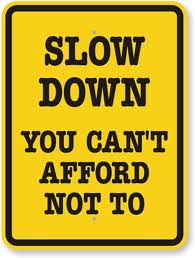 The Canadian Radio-television and Telecommunications Commission (CRTC) has issued new guidelines for consumers with complaints about their Internet Service Providers’ throttling practices that puts the burden of proof on the consumer to demonstrate an ISP is engaged in wrongful behavior before the CRTC will act.
The Canadian Radio-television and Telecommunications Commission (CRTC) has issued new guidelines for consumers with complaints about their Internet Service Providers’ throttling practices that puts the burden of proof on the consumer to demonstrate an ISP is engaged in wrongful behavior before the CRTC will act.
The revised guidelines appear to come in response to complaints from consumers who have been subjected to dramatically reduced speeds when using Rogers Cable Internet service to play online games while also running file sharing software in the background. Rogers’ speed throttling technology appears to be unable to discriminate between game traffic, which is not subject to speed reductions, and file swapping traffic, which is.
The Canadian Gamers Organization filed a formal complaint with the CRTC this summer accusing Rogers of engaging in Network Neutrality violations.
The CRTC gave Rogers until today to fix the errant speed throttle or respond to the agency with an explanation for the delay. As of this hour, Rogers appears not to have responded.
Last week, the CRTC began a crackdown of its own — against consumers bringing Internet complaints. The CRTC modified the complaint procedure to instruct consumers to first work with their ISP and application developers to resolve any outstanding issues before filing complaints. From the updated CRTC Guidelines:
How to make an Internet performance complaint
Before you complain to the CRTC about an Internet traffic management practice, you should first contact your Internet service provider to see if it can resolve the issue.
If your service provider doesn’t address your complaint to your satisfaction, and you believe that your service provider’s traffic management practices are not compliant with the CRTC’s policies, you can complain to the CRTC. Before doing this, make sure that you know your rights.

Rogers chokes the speed of undesireable peer to peer file traffic, but other applications like online gaming are also impacted. Consumers are complaining about the collateral damage.
What to include in your complaint
In your complaint, explain why you think your service provider’s traffic management practice doesn’t meet the requirements set out in their traffic management policy. It is not necessary to provide technical details about the problem, but the CRTC needs enough information to understand the problem. Please, clearly describe:
- What part of the traffic management policy you believe the provider has not followed
- When the problem occurred, and whether it is a recurring problem
- Which software program, or application, has been affected
- How the application has been affected
- The steps you’ve taken to try to resolve the issue with your service provider, including your provider’s response to your complaint
Consumer groups are not pleased the CRTC won’t engage directly in independent oversight of ISP speed throttling practices regardless of consumer complaints.
“We are not a consumer-protection agency,” the CRTC’s Denis Carmel was quoted as saying back in July.
“The CRTC must start enforcing its own policies,” says Canadian Gamers Organization co-founder Jason Koblovsky. “The CRTC needs to put a plan forth to ensure that regular audits are done on Internet Providers rather than relying solely on consumer complaints. We are asking the public to tell the CRTC that enough is enough: the Commission needs to take a much more proactive role in ensuring that Internet providers play by the rules. We are ready to act politically and force a solution here if need be.”
Koblovsky expanded his views on the subject in a blog entry:
We find this policy update to be more of an insult to consumers, and puts the responsibility of monitoring ISP’s use of [speed throttles] directly on the back of consumers. This is not acceptable by any means, and none of the policy recommendations we made that were thrown out by the CRTC in our initial complaint were taken into consideration, or for that matter seriously by the CRTC. This is a slap in the face to what we have been fighting for, and that is the CRTC has the responsibility to follow through, monitor and enforce its policies.
[…] Not one ISP has been found by the CRTC to be acting against net neutrality policy since they acted on this in 2009 with several complaints sent to the CRTC by consumers being dismissed due to lack of evidence over years of enforcement failure by the commission. There is no indication here that the CRTC is going to be dealing with a very high evidentiary thresh hold put on the consumer to launch a CRTC investigation in this policy update. All this update does is provide information on CRTC complaints procedures that are already in place, and consumers are already abiding by.
[…] Maybe it’s time we start acting politically on this issue instead, drop the CRTC from the picture to force the CRTC through legislation to listen to consumers, and start putting forth a much better effort on their responsibility to the public to enforce their policies. Or better yet, start billing the CRTC for our efforts on each complaint we become a part of.
Read this excellent analysis of game throttling and how Canadian ISPs master the art of Internet Overcharging.


 Subscribe
Subscribe